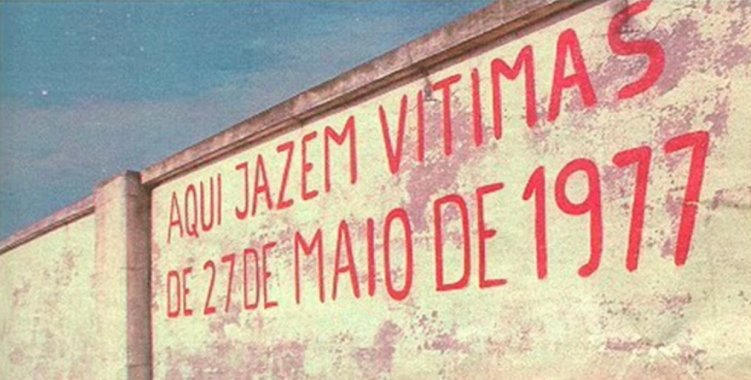The communiqué of Platform 27 May, to which the Lusa agency had access, states that the position is issued by this Sunday having marked the International Day for Victims of Forced Disappearances, declared by the United Nations, with the aim of remembering its victims, emphasizing that this practice "is a crime against humanity and does not prescribe.
The note stresses that 43 years have passed since the beginning of a process of political repression, which culminated in the deaths of thousands of Angolans and Angolans, including some Portuguese, who "according to Amnesty International's number about 30,000 in total", who made a unique contribution to Angola's national liberation struggle and/or the subsequent period of national reconstruction.
According to the platform, the social rift resulting from this repression persists in the country, since the whereabouts of thousands of members of the Popular Movement for the Liberation of Angola (MPLA) remain unknown until today.
"On this day, the Platform 27 de Maio comes to recall the need to rescue the memory of the events of May 1977 in Angola, and to seek truth, justice and reconciliation regarding one of the most traumatic periods in the history of the country, encouraging discussion on the subject at the level of Angolan and international public opinion," reads the document.
A set of demands were presented to the government, of which the organization highlights, the preparation of a list of missing persons, the location, DNA testing and return of their remains to their families and the search for the truth about the crimes committed.
The identification of those responsible, who cannot be considered "victims" with the allegation that they responded to orders, respect for the recommendations of the African Union and other international bodies are also other claims submitted to the authorities.
The return of dignity and good name to the victims of these events, as well as their families, are the objectives of the organization.
"The 27 May Platform aims to contribute to the historical clarification of the events in question, which have had dramatic repercussions on contemporary Angolan society," the document stresses.
The organization argues that "it is essential the official recognition of the events of 27 May 1977 as an integral part of the history of contemporary Angola", as well as the "integration of this part of history in school curricula, especially in Angola and Portugal".
Last year, the Commission for the Implementation of the Plan of Reconciliation in Memory of Victims of Political Conflicts in Angola was created between November 11, 1975 and April 4, 2002, with the issue of May 27 as the main "challenge", as the Minister of Justice and Human Rights, Francisco Queiroz, the commission's coordinator, admitted last February at the end of one of the group's meetings.
"Because May 27 generated two types of victims, those resulting from the attempted coup d'état - because May 27 was in fact an attempted coup d'état and generated victims by forces loyal to the government at the time - and also generated victims by the reaction to the attempted coup d'état," the minister disqualified at the time.
According to Francisco Queiroz, the reaction to the attempted coup d'état generated more victims than the government, and the balance between these two types of victims "is the great challenge of the commission".
"But the fact that we have reached this point and that we have seen that there are these two sides, these two types of victims is already a big step forward," considered the leader.
The date of May 27 is recorded in the history of Angola as an alleged attempted coup d'état in an operation apparently led by Nito Alves - who was Interior Minister between the independence of the country on November 11, 1975, and October 1976, repressed by the regime of the then President, António Agostinho Neto.







